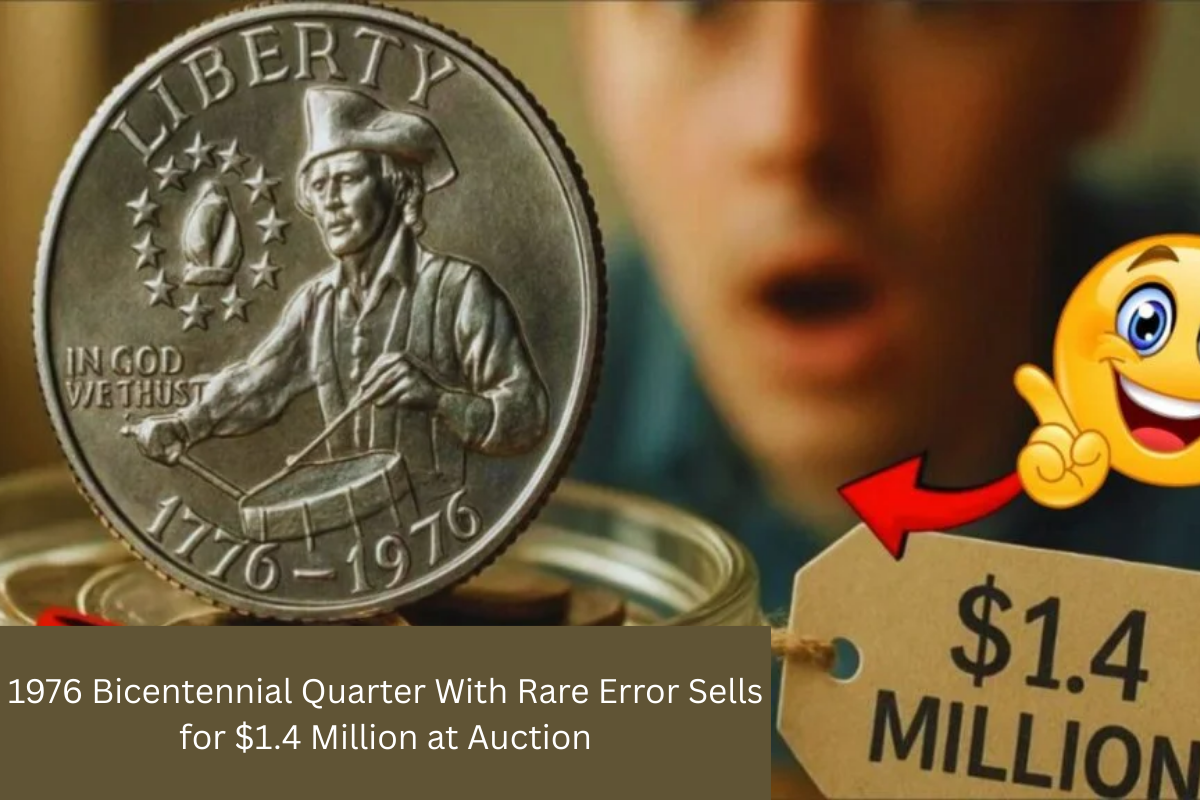A rare 1976 Bicentennial Quarter recently made headlines after selling for an astounding $1.4 million at auction. This extraordinary sale was the result of a rare error on the coin, turning what was once a common piece of U.S. currency into a highly sought-after collector’s item. Here’s a closer look at the 1976 Bicentennial Quarter and what makes this particular coin worth millions.
The 1976 Bicentennial Quarter: A Piece of U.S. History
In 1976, the U.S. Mint issued a special set of coins to celebrate the 200th anniversary of the United States. These Bicentennial coins featured designs that were different from the usual coins in circulation, with the reverse of the quarter depicting a drummer boy. While these coins were issued in large quantities, making them relatively common, some have become extremely valuable due to rare minting errors.
What Makes This 1976 Bicentennial Quarter Worth $1.4 Million?
The 1976 Bicentennial Quarter that sold for $1.4 million was not just any quarter—it was an error coin with a double strike. Double-strike coins occur when a coin is struck by the mint’s die more than once, often leading to a misaligned or overimprinted design. In this case, the double strike made the design of the drummer boy appear twice on the quarter, creating a unique and valuable piece.
Discovered in a coin jar, the quarter was initially overlooked by its previous owner, unaware of the coin’s true value. After being appraised, the coin was sold at auction for an incredible $1.4 million, proving that sometimes the most valuable coins can be found in the most unlikely places.
Why Are Double-Strike Error Coins So Valuable?
Double-strike error coins are highly valuable because they are so rare. The minting process is carefully controlled, and most coins that come off the die are perfectly struck. Any deviation, such as a double strike, makes the coin unique and collectible. The rarity of a double-strike coin, combined with its historical significance—such as a Bicentennial commemorative quarter—makes it especially desirable to collectors.
Collectors value error coins not only for their rarity but also for the story they tell. Coins like the 1976 Bicentennial Quarter have a certain mystique because they were produced by mistake, yet ended up becoming a coveted item in the world of numismatics.
How Can You Spot a Rare Coin Like the 1976 Bicentennial Quarter?
Finding a rare coin like this one requires patience and a keen eye. Most rare error coins are discovered by collectors who meticulously examine their coin jars, rolls, or collections. While the 1976 Bicentennial Quarter may seem ordinary, the error that made it worth millions is one that is easily spotted with a careful look. Look for any signs of a double strike or other irregularities in the design, as these are the primary indicators of a rare error coin.

